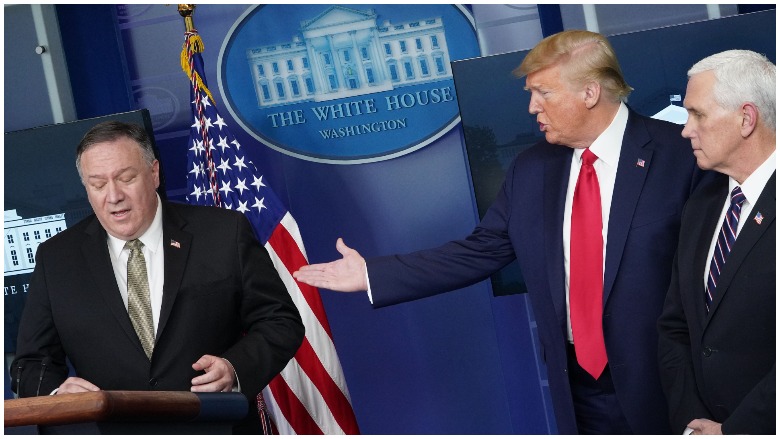
Getty Americans began to receive their coronavirus relief checks on April 9.
Americans are starting to receive their $1,200 stimulus checks, but people want to know: is it a loan? No.
By definition, a loan is “money, property, or other material goods given to another party in exchange for future repayment of the loan or principal amount, along with interest or finance charges.”
The cash payment from the IRS is nontaxable government aid, and you won’t have to repay any of it. Even those who do not typically file a tax return will qualify for these payments.
The stimulus checks have been issued as part of $2 trillion stimulus package in an effort to relieve the economic impact of the coronavirus pandemic.
You Won’t Have to Pay It Back, Even If Your Check Is Too Big
The IRS will use 2018 and 2019 tax returns to determine your eligibility for stimulus checks based on income. Those who filed taxes with the IRS and earn up to $75,000 annually will receive $1,200 each, plus an additional $500 for dependent children under the age of 17. The stimulus amount decreases for those who make more than $75,000, phasing out completely for individuals who earn $99,000 or more annually.
As Business Insider points out, the check is a one-time payment that is refundable, so you won’t have to pay it back if you get too much. They write that the check, “really is no-strings-attached government aid.”
If you make significantly more money in 2020, you will also not have to pay back any of the money received from the stimulus. For example, if you earned $40,000 in 2019, then you qualify for the full $1,200 stimulus check. If, in 2020, you earn $110,000, which would disqualify you for a check, you still do not have to pay back the $1,200.
When Will I Receive My Check?
A number of people have already received their stimulus checks, and 60 million direct deposit payments are expected to be made in mid-April.
The first group of individuals to receive their checks will be those whose direct deposit information is on file with the IRS. The second round of payments will then be made to Social Security beneficiaries who do not file tax returns, but who receive their payments via direct deposit.
Checks will be sent in the mail beginning in early May to those who did not receive their $1,200 through direct deposit.
The IRS is planning to launch a direct deposit portal, according to a previous Heavy article, that will help Americans get their stimulus payments more quickly. The portal will be launched in mid-April, and it will also allow people to track the timeline of their payment and to see their payment status.
The portal is expected to open by Friday, April 17. You can check in on its status by visiting the IRS Economic Impact Payment page each day.
When the portal does open, you will need banking information in order for the IRS to know where to deposit your payment. You will also need the name of your bank, your routing number, your account number for your bank account, and personal details like your mailing address, email address, and phone number. It is possible that you will need to provide your social security number to verify your identity.
READ NEXT: COVID-19 Stimulus Checks: How Millions of Young Adults Are Being Left out